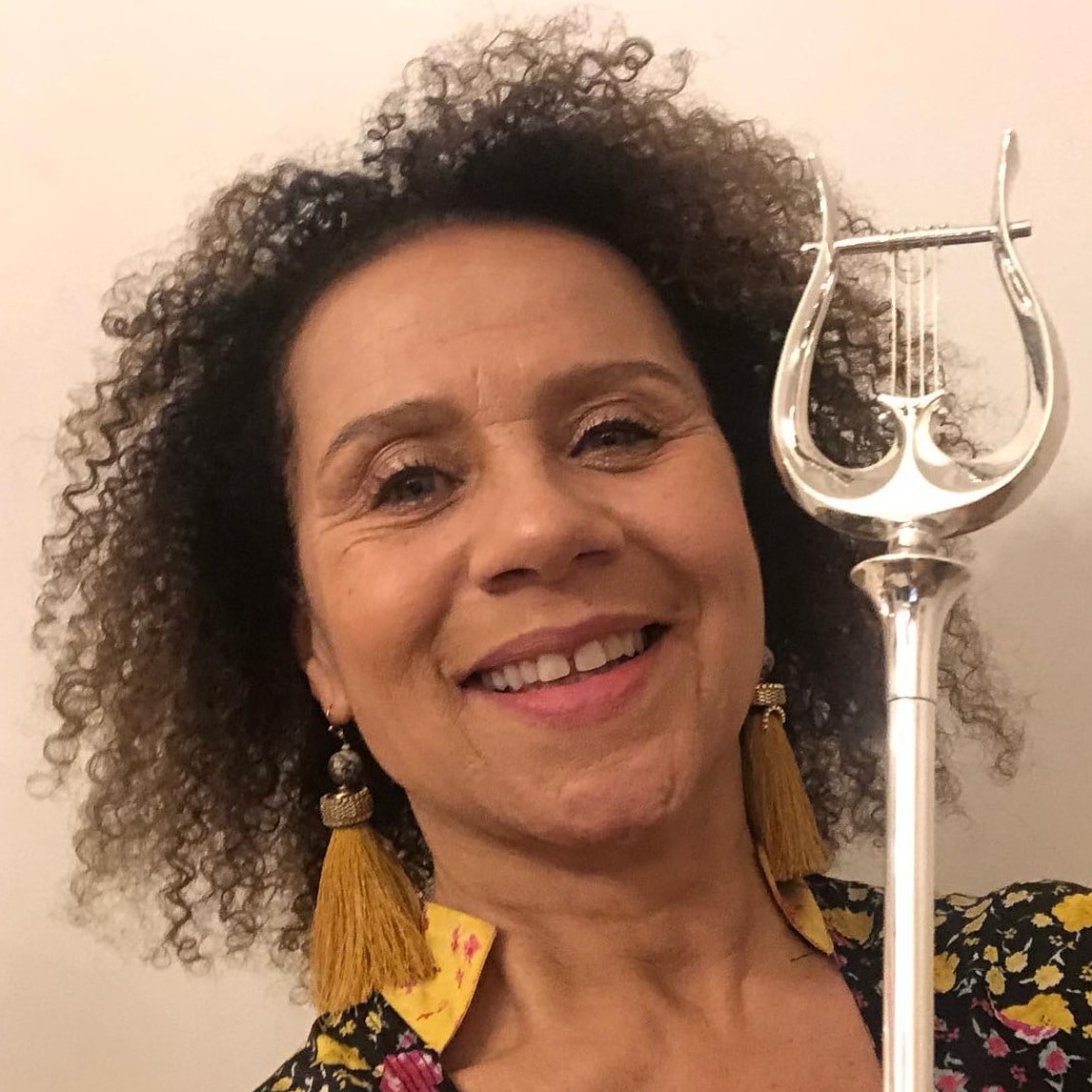Chineke! drops orchestra manager
NewsAmid a flood of board resignations and multiple allegations of bullying, we hear that diversity orchestral campaigner Chi-chi Nwanoku has dismissed Chineke’s highly experienced orchestra manager.
We have asked Chi-chi to comment on these events and are waiting for her response.






Good. Anything with “diversity” in its name should fall to the bottom.
Go to Russia to enjoy the “freedom” under Vladimir Putin. We don’t need your kind in the free world.
Not a very diverse statement; so which kind do you approve of?
Dear Thomas,
I’m French. Serge is also a French name. So what Russia has to do with this is unknown to me. Everytime I read about diversity, it is for me the same as when a country puts “democratic” in its name. Something is dubious.
No surprise at all about allegations of bullying. Nwanoku was given the boot by OAE several years ago for being a constant disruptive presence there, harassing her fellow musicians and management alike. Always has some axe to grind, it seems.
As with my earlier posting, all the information here comes from documents in the public domain, as Chineke Foundation, in common with almost every UK orchestra, large or small, is both a registered charity and a limited company and therefore has to publish certain documentation. As mentioned previously, more unusual in this case (although not unknown in “founder driven” orchestras) is that, alongside being “Founder, Artistic Director and Executive Director”, Ms Nwanoku is also a trustee of the charity and a company director, and according to the foundation’s published accounts is also paid for her work. (When the foundation was set up, the Charity Commission will have had to approve the inclusion of this trustee payment clause).
With regard to recent resignations of trustees, Chineke’s press release of 12 February 2021 made much of the appointment of a new chair of trustees, Ije Nwokorie (a Senior Director at Apple, previously CEO of branding firm Wolff Olins). In early September 2022 Ije Nwokorie was amongst five of Chineke’s eight trustees who resigned.
At 31.03.2021 those trustees (and their substantial experience as described by Chineke) were:
– Candace Allen (the first African-American woman admitted to the Directors’ Guild of America);
– John Basnage (Managing Director at Full Circle Capital);
– Diane Henry-Lepart FCA (Founder and Managing Director of FEND Capital Partners Ltd);
– Dawid Konotey-Ahulu (Co-Founder of investment consultancy firm Redington Ltd);
– Chi-chi Nwanoku;
– Ije Nwokorie (Senior Director at Apple, previously CEO of branding firm Wolff Olins);
– Kenneth Olumuyiwa Tharp (former Director of The Africa Centre and previously CEO of The Place);
– Krishna Thiagarajan (CEO and President of Seattle Symphony);
After the resignations in early September 2022, Chineke’s website today lists three remaining trustees:
– Candace Allen;
– Kenneth Olumuyiwa Tharp;
– Chi-chi Nwanoku.
Three is the minimum number of trustees which Chineke’s Mem and Arts permits. For so many trustees to resign at once is unusual in UK charities. And whilst Chineke’s Mem and Arts requires that one third of trustees should retire annually, the Mem and Arts enables the retirees immediately to be re-elected. So even if required rotation were to be a contributory factor, that five of the eight chose not to be re-elected suggests more than just annual process: that the chairman resigned after only eighteen months in post is perhaps significant.
Not without significance too, as Chineke receives substantial funding through the Arts Council (i.e. public funds are involved) are the sums paid to Ms Nwanoku. For the year ending 31.03.2020 she received £42,000 as her artistic consultancy fee (plus £17,172 in fees for performing with the orchestra): by the following year her management fee had risen by 50%, despite the foundation’s turnover reducing significantly due to the pandemic, with her artistic consultancy fee now £63,100 (plus £8,500 in fees for musical performances). The accounts to 31.03.2022 do not need to be published for another three months. With only three trustees/directors remaining, Ms Nwanuku is now presumably also a “person with significant control”.
Amongst various management posts at Chineke which have recently been advertised, that of “Personal Assistant to the Artistic & Executive Director” includes the intriguing requirement for the PA to file “private documents, speeches, photographs, letters, articles, reviews, film & media materials and general feedback for the Chi-chi Nwanoku archive”. Such an archive may one day make quite a lively read.
Thanks for this detailed analysis UK Arts Administrator. A question if I may.. you rightly highlight the commission consent that must have been granted for Chi-chi to be a remunerated director, but that wouldn’t remove the duty to properly manage conflicts of interest. Can the board therefore be functional (i.e. still quorate) whenever Chi-chi has to be excluded from the meeting/vote in order to manage that conflict appropriately (which must surely be the case in most matters relating to budget)?
If conflicts can’t be managed appropriately, does that not become a reportable ‘significant incident’ in the Charity Commission’s eyes? (from the CC website on other signifcant incidents that require reporting: “your charity has experienced major governance problems, such as mass resignation of staff or trustees, or other events, leaving it unable to operate”).
Those are interesting questions. Not many arts managers are trained in more complex areas of charity law, normally remaining only at ‘bread and butter’ level. That disclaimer lodged, the “conflict of interest” sections of the Chineke Mem and Arts make interesting reading, and m’learned friends might need to spend some time before giving an opinion, especially as Chineke’s constitution looks to have been a ‘custom built’ one (which it presumably needed to be, with one central figure being executive and artistic director, a trustee and director, public figurehead, and a prominent figure on its concert platforms). Chineke Foundation still has three trustees, and three trustees on first reading of the Mem and Arts appears to be acceptable.
The Charity Commission doesn’t often appear to intervene (or at least to do so openly) in the affairs of charities, except when there have been significant financial or reputational issues. Whether Chineke has, in the commission’s view, approached that threshold remains to be seen.
Nwanoku is a divisive race-grifter. She can get away with doing or saying anything.
Wow! and I was going to fund them.
Sounds like it must torture working for this woman.
Who cares about their internal turmoil: They just released an intriguing double album with music by British romantic Samuel Coleridge-Taylor.
Speaking on Woman’s Hour on BBC Radio 4 last week, Chi-chi Nwanoku claimed that ‘it’s incredible music that we have been denied most of our lives really; I never learned about Coleridge-Taylor or anyone else of his ilk’.
This is rather disingenuous. There were very few black people in Britain at that time (even Coleridge-Taylor’s father had returned to Africa before his birth) but if there’s one at least part black composer most people could name it would be Coleridge-Taylor, and the music had been extremely popular (my grandparents and great aunts knew Hiawatha well). The reason it was popular though is that it was essentially light music. Some of it’s not bad but it so quickly came to sound old-fashioned.
Coleridge-Taylor was born in 1875, the same year as Ravel. Debussy – 1862, Strauss – 1864, Stravinsky – 1882 (not to mention Schönberg – 1874)… Coleridge-Taylor wasn’t part of that stream. It’s interesting contrasting him with Vaughan Williams (born 1872).
I speak for the abstentions.
I was once full of admiration for Chi-chi. If there is indeed discrimination against non-white musicians, then three cheers for her responding by founding an orchestra comprising principally non-white players – and a pretty good orchestra too.
Three cheers too for ignoring diversity – nobody could pretend that the Chineke! Orchestra is diverse as it sets out to be an orchestra comprising a majority of non-white performers.
Purely on a personal level, three more cheers for playing and recording the music of Samuel Coleridge Taylor, which I really love. (Thanks for mentioning the latest recording, Thomas M; I shall order this without delay.) He was a latter-day Schubert, in that the music seemed to drip from his fingers to the page – there’s not a sign of any creative effort involved. He may not have stormed the heavens like Beethoven and Wagner, but in my opinion he would have been a genius even if he’d written nothing else but Hiawatha.
And three more cheers again for an outstanding TV documentary on SCT that Chi-chi produced five years ago.
All this positive work showed the Jesse Owens spirit (and one could add Marian Anderson, Paul Robeson and a host of others – up to the present-day Kanneh-Mason family) who confounded discrimination by peacefully showing the world their own excellence.
Now let’s flip the coin.
Three jeers for Chi-chi swapping peaceful and positive advocacy for corrosive, divisive political activism that causes resentment and detracts hugely from the work that she has done.
Three jeers for being, by all accounts, unpleasant, hectoring and abrasive; the management of her orchestra is in tatters, betraying the musicianship of the performers and the cohesiveness of the organisation.
Three jeers for her embarrassingly gauche effort to get Rule Britannia banned from the Proms.
Three jeers because, notwithstanding that, she still accepted the MBE (Member of the Order of the British Empire!), OBE (Officer of the Order of the British Empire!) and, as her website proudly proclaims in huge letters at the head of the home page, she is also: ‘Chi-chi Nwanoku, CBE – Double Bassist’. If this isn’t hypocrisy, what is?
To lose one director may be regarded as a misfortune; to lose six looks like carelessness. Where will all this end? This year, Chineke! appeared at the Proms; next year, will they be performing Haydn’s Farewell Symphony, with each player plodding off the platform one by one? Or maybe Vivaldi’s Bassoon Concerto in C major, which is catalogued as P45? Or maybe the six Bach Cello Suites performed by the founder on a solo double bass?
Finally, as mentioned by NL in a previous posting, this very same Chi-chi is, unbelievably, one of the candidates for Controller of Radio 3! God help us.
As I said at the beginning, I speak for the abstentions.
You have spoken well and with feeling.
Once again your words are like a fierce cordial, Herbie. And that’s a terrific Vivaldi crack. All in all an elegant & usefully comprehensive post, even by your accustomed standard. And (if I may say so) you can’t half write. Which is nice.
Herbie G
Comment of the year, well said and thank you.
How is Chi-Chi “principally non-white”? Her Mother is white Irish!
Pat: quickly passing over the fact that you disrespect Dr Nwanoku by misspelling her first name, Herbie does not say she is “principally non-white”. That would be a nonsense. He says something else.
Do you really think the rest of us are too dim to scroll up a few inches and check your unlikely assertion?
Did your English teacher not tell you the difference between common nouns & proper and why shriek marks are to be avoided?
Is everything all right at home?
She is not a ‘Dr’.
(sighs) Burt, Burt. Wishes are not facts, and facts are best checked: laughably or otherwise, she is Hon. MusD (University of Chichester, 2018; Open University, 2019).
OK, that’s as in *Dr* George Guest. But given the hammering the woman is taking (and I’m certainly more a jeerer than a cheerer), I thought I’d extend the niceties there. And spell her name right, of course.
The Irish bass player Chinyere Adah Nwanoku has always used both Chi-Chi and Chi-chi for a nickname as long as I have known her,
My English teacher referred to exclamation marks I have never heard of a shriek mark we don’t have them in the UK.
*nickname* Blimey, Pat: stop when you’re behind. That last sentence is, well, a shriek. The rest can look after itself too: res ipsa ’n’ all that. Please, basta!
I sympathise with the discomfort over the use of the word ‘diversity’ as a euphemism. Similarly, ‘British’ in the UK news media has come to be a euphemism for ‘Pakistani Muslim’ . ‘Chineke!’ is described a s a’British’ orchestra. But it seems caucasian musicians are banned . Is this racial discrimination?
Do we have ” all blacks” sports teams anymore?
FWIW Chineke!’s concerts coming up at QEH are relatively poorly sold (good in the Front Stalls though still plenty available, very modest in the Back Stalls). Given the enormous publicity of the group in the national media and London’s demographic one has to wonder at their long time viability. The public voting with their feet.